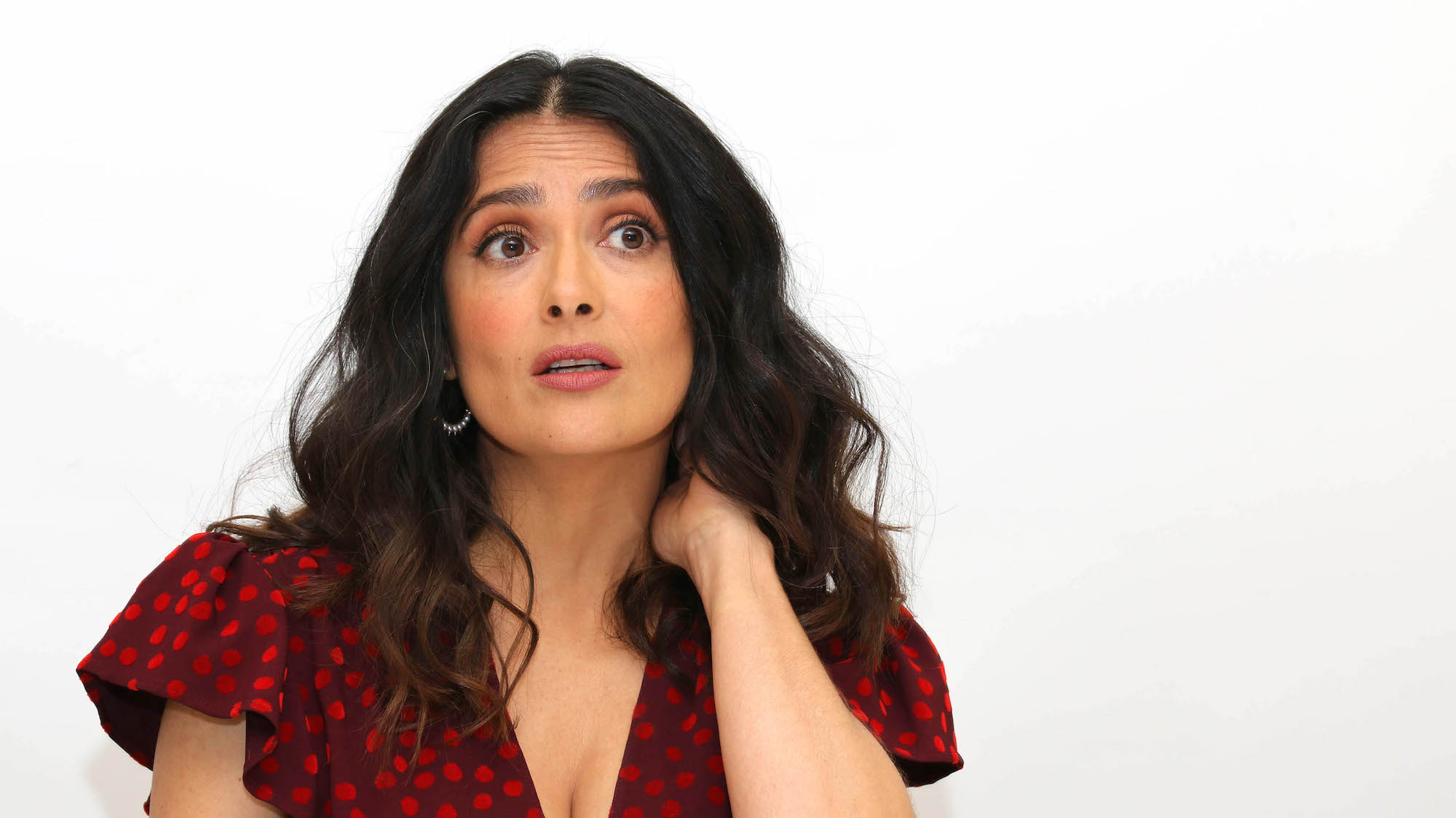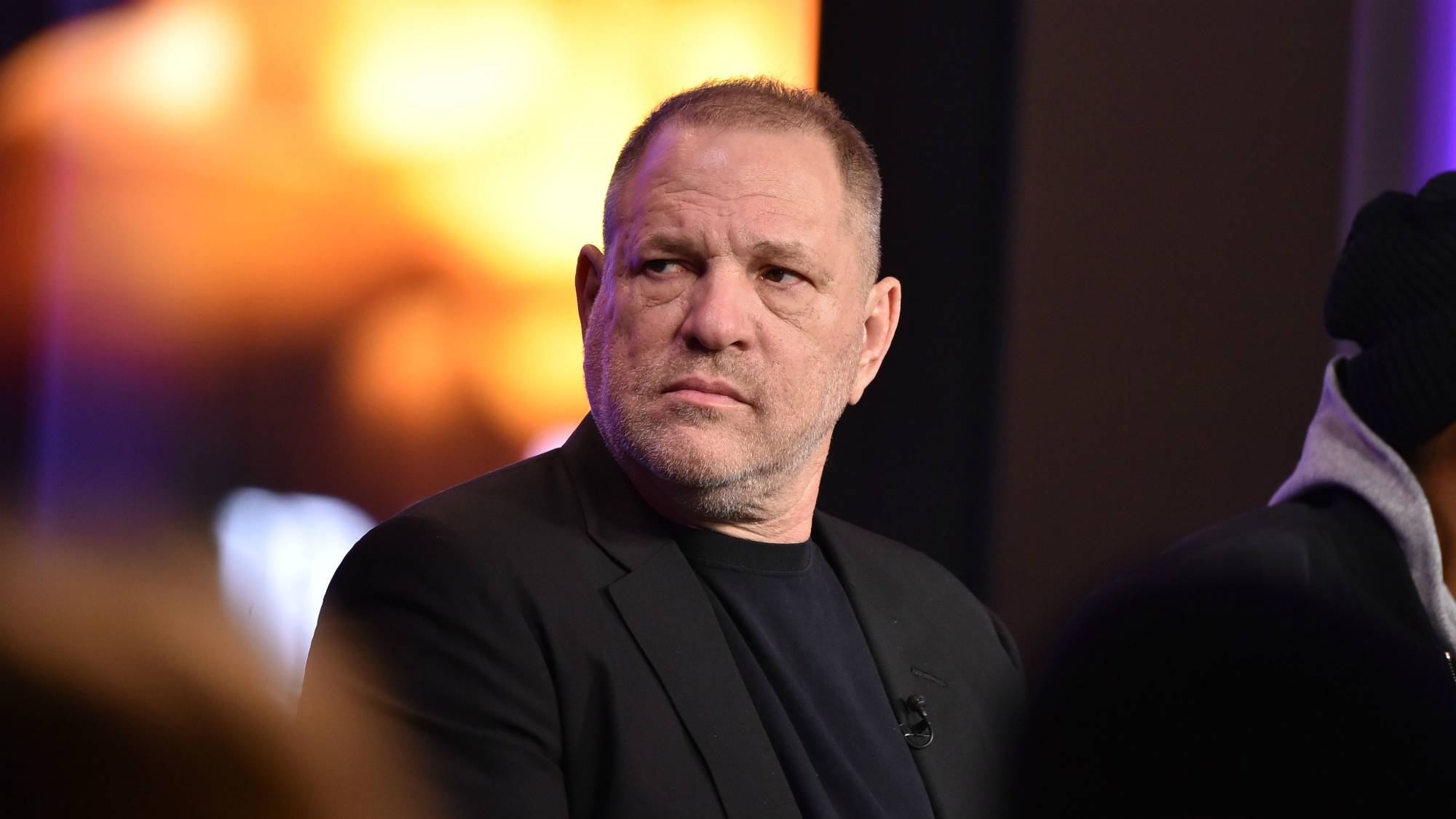Salma Hayek 'felt ashamed' for not speaking out about Harvey Weinstein sooner
'I felt ashamed that I was a coward'


Celebrity news, beauty, fashion advice, and fascinating features, delivered straight to your inbox!
You are now subscribed
Your newsletter sign-up was successful
'I felt ashamed that I was a coward'
The past few months have been consumed a wave of sexual misconduct revelations and awareness movements, all sparked by the New York Times' exposé on disgraced producer Harvey Weinstein, now accused of sexual harassment and in some cases assault by over 60 women.
Hollywood actress Salma Hayek was one of the high profile name to speak out about the producer, explaining that he even went as far as threatening to kill her.
In an op-ed that she wrote for the New York Times, the 51-year-old actress detailed her encounters with Weinstein from when they worked together on the Academy Award winning 2002 film, Frida, but according to Salma, she could have spoken out sooner.
'[The New York Times] contacted me to be a part of the first story and already by this contact, there was all this turmoil and I started crying when they asked and I ended up not doing it,' she recently recalled, as reported by BuzzFeed. 'And then I felt ashamed that I was a coward. I was supporting women for two decades but I couldn't do this. I thought of my daughter. I thought of the shame. When it came out, then I was ashamed that I didn't speak up and then when so many women came out, it was a strange sensation.'

In her op-ed after the movement against Weinstein had taken off, Salma explained how she had originally pitched the Frida script to the director and how she was confronted by an endless string of sexual advances, that she turned down continuously.
'No to me taking a shower with him. 'No to letting him watch me take a shower. 'No to letting him give me a massage. 'No to letting a naked friend of his give me a massage. 'No to letting him give me oral sex. 'No to my getting naked with another woman,' she wrote.
Celebrity news, beauty, fashion advice, and fascinating features, delivered straight to your inbox!
‘I don’t think he hated anything more than the word “no” - the range of his persuasion tactics went from sweet-talking me to that one time when, in an attack of fury, he said the terrifying words, “I will kill you, don’t think I can’t.”'
Going on to recall one particular moment mid-production, Salma explained how Weinstein had threatened to shut the film down unless she filmed a completely nude love scene with another actress.
'This time, it was clear to me he would never let me finish this movie without him having his fantasy one way or another. There was no room for negotiation,' she explained. 'I had to say yes.'
Explaining how she had to get through the scene, Salma explained, ‘I had to take a tranquilliser, which eventually stopped the crying but made the vomiting worse - as you can imagine, this was not sexy, but it was the only way I could get through the scene.’
She continued: 'Since those around me had no knowledge of my history of Harvey, they were very surprised by my struggle that morning. It was not because I would be naked with another woman. It was because I would be naked with her for Harvey Weinstein. But I could not tell them then.'
She went on to explain how the whole experience left her 'so emotionally distraught that [she] had to distance [herself] during the postproduction.'
'I went to war and I won, but why do so many of us, as female artists, have to go to war to tell our stories when we have so much to offer? Until there is equality in our industry, with men and women having the same value in every aspect of it, our community will continue to be a fertile ground for predators.'

Jenny Proudfoot is an award-winning journalist, specialising in lifestyle, culture, entertainment, international development and politics. After working at Marie Claire UK for seven years - rising from intern to Features Editor - she is now a freelance contributor to the News and Features section.
In 2021, Jenny was named as a winner on the PPA's '30 under 30' list, and was also listed as a rising star in journalism.